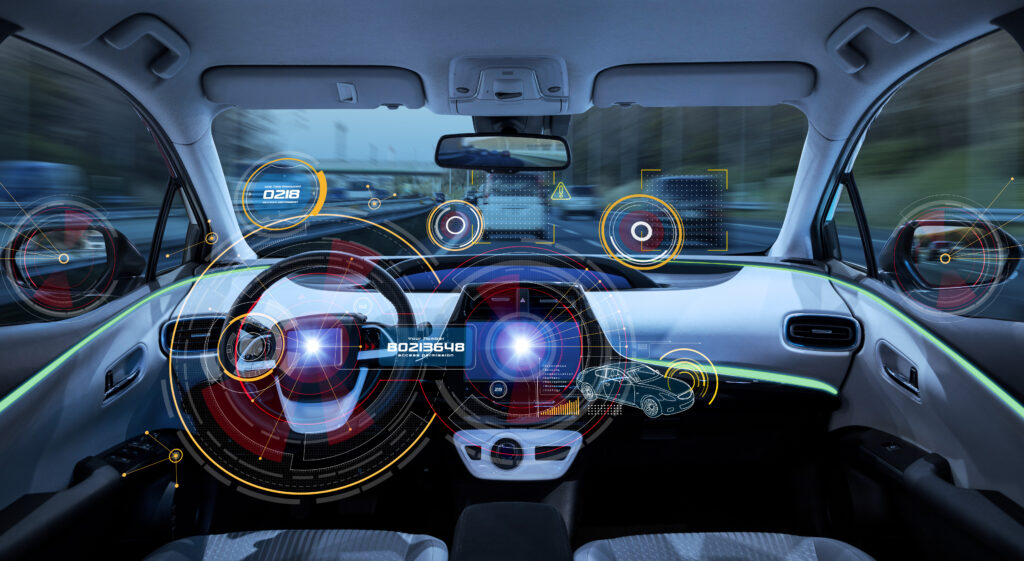The automotive industry is shifting gears. Between electrification, autonomous driving, supply chain volatility, and the race for smarter mobility – automakers face unprecedented complexity. Traditional computing methods are no longer enough to keep up with the scale and pace of innovation required.
Enter quantum computing—a breakthrough that could radically change how automotive companies design, build, and operate. Quantum is moving from theory to practical experimentation, and early adopters are positioning themselves to lead in the next era of mobility.

Quantum in the Driver’s Seat
Quantum computers use qubits that can represent multiple states simultaneously—enabling them to solve complex problems far faster than classical machines. These capabilities are particularly well-suited for optimization, simulation, and probabilistic modeling—all of which are central to modern automotive innovation.
From accelerating EV battery development to real-time traffic optimization, quantum computing could unlock solutions that were previously out of reach.
Driving Innovation: Quantum Use Cases Accelerating Automotive Innovation
1. Autonomous Driving Development
Developing autonomous vehicles requires simulating countless real-world driving scenarios to ensure safety and reliability. Quantum systems can process and evaluate these scenarios in parallel—dramatically reducing the time and computing power needed.
Quantum applications can support:
- Faster training of AI models
- Real-time optimization of routing and decision-making
- Enhanced vehicle-to-vehicle (V2V) and vehicle-to-infrastructure (V2I) communication
The result: Safer, smarter autonomous vehicles that learn and adapt more quickly—accelerating time to market and reducing costly validation cycles.
2. Vehicle Design & Material Science
Quantum computers can simulate molecular structures with extraordinary precision, enabling breakthroughs in material discovery. This is particularly impactful for next-gen electric vehicles.
Potential applications include:
- Designing next-gen EV batteries with higher capacity and faster charging
- Identifying new alloys and composites for lighter, safer vehicles
- Accelerating crash and performance simulations with quantum-enhanced models
The result: Faster innovation in vehicle design, leading to more efficient, competitive, and sustainable products.
3. Supply Chain & Manufacturing Optimization
Global supply chains and factory floors are riddled with interdependencies. Quantum algorithms can evaluate millions of possibilities in real time to identify optimal production and distribution strategies.
Automakers can use quantum to:
- Optimize routing and delivery networks
- Predict and respond to disruptions
- Enhance production scheduling across plants and suppliers
The result: Leaner, more resilient supply chains with increased throughput, lower costs, and reduced downtime.
4. Vehicle Optimization
Quantum computing enables real-time analysis of complex vehicle data to optimize performance. Whether for electric efficiency or mechanical tuning, these systems can deliver personalized, condition-aware recommendations.
Applications include:
- Adaptive energy use in electric vehicles
- Predictive maintenance scheduling based on quantum simulations
- Custom performance tuning for connected cars
The result: Vehicles that are more efficient, personalized, and responsive—improving both customer experience and operational cost.
5. Smart Cities & Traffic Flow
As vehicles, infrastructure, and cities become more connected, managing urban mobility will require advanced optimization capabilities. Quantum can help solve traffic flow, signal timing, and transit routing problems that are too complex for current systems.
Potential use cases:
- Traffic signal coordination to reduce congestion
- Dynamic route planning for public transit
- Emergency vehicle dispatch optimization
The result: Smarter, faster-moving cities with fewer traffic jams, lower emissions, and improved commuter experiences.

Building the Quantum Engine: Preparing with Cloud Technologies
Quantum’s future impact depends on cloud capabilities available today. Cloud technologies provide the scalable infrastructure, flexible access, and development tools needed to support quantum experimentation and adoption.
1. Access Quantum Hardware via the Cloud
Platforms like IBM Quantum, Microsoft Azure Quantum, and Amazon Braket allow teams to experiment with Quantum capabilities. Teams can run quantum algorithms on simulators, prototype solutions to real-world problems, and explore quantum’s potential without major capital investments
2. Centralize and Scale Data Infrastructure
Cloud data providers enable secure, scalable storage and integration of data across design, manufacturing, and fleet systems. This foundation is essential for quantum workloads that rely on large, well-structured datasets.
3. Upskill with Cloud-Based Quantum Development Tools
Quantum requires new skills and tools. Cloud environments such as IBM Quantum Lab and Azure Quantum provide learning modules, SDKs, and hands-on development environments to accelerate internal capability building.
Building the Quantum Engine: Preparing with Cloud Technologies
The Road Ahead: Accelerating into the Quantum Era
Quantum computing has the potential to transform the automotive industry—from the design studio to the factory floor, and from city streets to autonomous highways. But companies that wait for the technology to mature risk falling behind those that begin preparing today.
At Hakkoda, now part of IBM, we help automotive leaders lay the groundwork for quantum adoption—starting with scalable cloud infrastructure, data modernization, and early-stage use case exploration.
Contact us to explore what’s possible—today and tomorrow.





